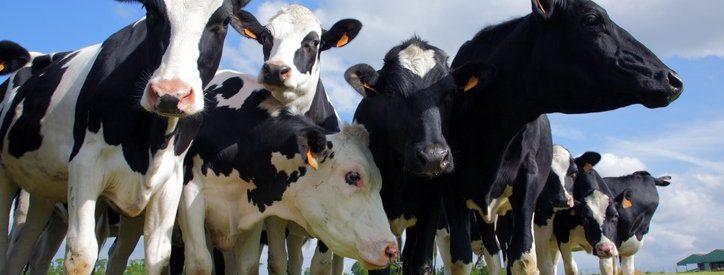Protecting Your Livestock is Key to Ensuring the Longevity of Your Farm
You’ve already worked hard to create an area for your livestock that’s protected with fences and other precautions — but what about insurance? Just like your equipment and your buildings, you should have a livestock insurance policy to protect your farm from every angle.
Your farm is your livelihood, and if you have livestock, they play a big role in your revenue and how you make your living. Having livestock insurance as part of your overall farm insurance policy is one way you can protect these assets from any risks that you face.
So, how does livestock insurance work? These policies go into effect if you are ever faced with disease, death, accidents, or livestock getting out of their pens. These are all common risks that farmers face year after year, but you shouldn’t allow them to leave you financially vulnerable.
That’s where livestock insurance comes in. If, for example, you have a herd of cattle and 50 get out of their pen when a storm takes down part of the fence. You’re going to be lucky if you can get all 50 of them back. With livestock insurance, you’ll be able to use this coverage to cover the costs of replacing your losses and even repairing the pen.
There are a few different types of policies since livestock is a general term and can apply to a wide variety of animals and farm focuses. You’ll want to make sure you’re getting the right policy for the amount and type of livestock you have.
What Are the Types of Livestock Insurance?
Most often, livestock insurance is used to cover all livestock or poultry by grouping them together as one risk. There are also policies that can offer specific coverage for groups of animals like cattle, pigs, hogs, chickens, and even emus. Then, there are policies based on the number of animals that you have. There are three different types:
- Individual — If you have high-value animals on your farm, this is probably the best insurance policy. Each animal will be listed individually in your policy and will have a specific dollar amount that they will be covered for.
- Blanket — If you want to just cover your entire farm under one policy, rather than having it broken down into separate policies, blanket coverage combines your entire farm property. A predetermined value will include your livestock, farm equipment, any tools you use, buildings on your property, and the land that you own.
- Herd — This is a simple and straightforward option. If you have a herd of livestock, like a herd of 300 cattle, you’ll want to use this coverage. These policies cover a large and specific number of animals to help you recover if an event happens that takes out a large percentage of your livestock.
From here, the type of policy that you choose falls into two different forms of coverage: comprehensive and limited.
Comprehensive is similar to your blanket livestock policy in that it groups together several risks that you might be facing into one option. Typically this will include theft, accidents, sickness, disease, and injury.
Limited coverage, on the other hand, handles more specific risks. In this coverage, you’ll see these incidents are covered:
- Drowning, fire, smoke, electrocution, explosion, shooting, falling objects, or loading and unloading accidents
- Weather events like hail, severe wind, lightning, or flood
- Natural disasters like an earthquake, sinkhole, tornado, and even volcanic eruption
- Crimes like theft
- Water or heating malfunction
- Attacks from other animals, like coyotes or mountain lions
- Auto accidents during transportation
It’s also important to note that there are a few exceptions that livestock insurance won’t cover. Many farm insurance policies will not provide coverage due to the loss of livestock from disease, death from natural causes, or old age. Insurance that covers these factors does exist, but it’s a separate policy called livestock mortality insurance. You’ll have to add this on to your existing policy if it’s something you’re interested in.
What happens if you already have livestock insurance and you acquire more animals? Most policies will offer an extension that will cover your new livestock, but you’ll want to make sure that they are reported to your insurer within the timeframe stated in your policy.
With livestock insurance, there can be a lot to manage, and a dedicated insurance agent can help. If you have questions, turn to an independent insurance agent for help. These agents aren’t tied to one carrier and can help you identify the best policy for your risks and financial requirements for your livestock and your farm overall.
Interested in learning more? The independent agents at CoverLink Insurance are here to help. Start a conversation with us today to find the policy that’s right for you.
